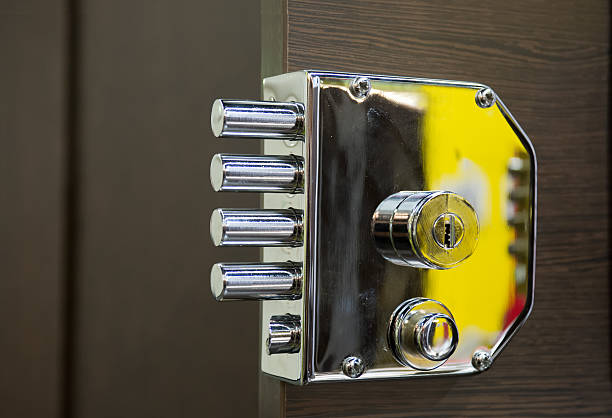
In the fast-paced world of trading, proprietary trading firms, or prop trading firms, have become increasingly popular. These firms offer traders the opportunity to trade using the firm’s capital rather than their own. While this can be a lucrative opportunity, choosing the right prop trading firm for you can be a daunting task. In this guide, we’ll help you untangle the complex world of prop trading firm, providing you with valuable insights and practical tips to make an informed decision.
Understanding Proprietary Trading
Before you can choose the right firm, it’s essential to understand what proprietary trading is. Prop trading involves a firm investing its own money in financial markets, and traders are given a portion of the profits. This setup allows traders to access more significant capital without risking their funds.
The Appeal of Prop Trading
For many traders, the allure of prop trading lies in the ability to trade with more substantial capital and the potential for higher profits. Without needing to invest personal funds, traders can explore strategies they wouldn’t otherwise afford. Prop trading also provides a safety net, as losses are typically absorbed by the firm, not the trader.
The Role of the Trader
In a prop trading firm, traders aren’t just employees; they’re partners. Their role involves executing trades, developing strategies, and managing risks. Successful traders often receive a share of the profits, which can be a motivating factor.
How Prop Trading Differs from Retail Trading
Unlike retail trading, where individuals trade their own money, prop trading involves using the firm’s capital. This difference means that the stakes are higher, but so are the rewards. Traders in prop firms often have access to advanced tools and resources unavailable to retail traders.
Evaluating Firm Reputation
Choosing a reputable prop trading firm is crucial for success. A firm’s reputation can significantly impact your trading experience, so it’s essential to do your homework.
Researching Firm History
Start by researching the firm’s history. Look into how long they’ve been in business, their track record, and any notable achievements. Firms with a long-standing presence and a solid track record are generally more reliable.
Reading Reviews and Testimonials
Online reviews and testimonials from current or former traders can provide valuable insights into a firm’s reputation. Look for feedback on the firm’s culture, support, and payment practices to get a sense of what you can expect.
Checking for Regulatory Compliance
Ensure that the firm complies with relevant financial regulations. Regulatory compliance indicates that the firm operates transparently and ethically, protecting you from potential scams.
Assessing Commission Structures
Understanding a prop trading firm’s commission structure is vital, as it directly impacts your earnings. Different firms offer different payment models, so it’s essential to know what you’re getting into.
Profit-Sharing Arrangements
Most prop trading firms operate on a profit-sharing model, where traders receive a percentage of the profits they generate. Look for a firm with a competitive profit-sharing ratio that aligns with your goals.
Understanding Fees and Costs
Some firms may charge fees for using their platforms or resources. It’s crucial to understand these costs upfront to avoid any surprises later on. Review the firm’s fee schedule carefully and consider whether it’s reasonable given the services provided.
Comparing Commission Rates
Compare commission rates across multiple firms to ensure you’re getting a fair deal. While a higher profit-sharing rate may seem attractive, don’t forget to consider other factors, such as fees and support.
Evaluating Training and Support
The level of training and support offered by a prop trading firm can greatly influence your success. A firm that invests in its traders’ development is more likely to foster a supportive environment.
Onboarding and Training Programs
Look for a firm that offers comprehensive onboarding and training programs. These programs should cover trading strategies, risk management, and platform navigation to ensure you’re well-prepared.
Access to Mentorship
Having access to experienced mentors can be invaluable for new traders. A firm that provides mentorship opportunities demonstrates a commitment to your success and growth.
Ongoing Support and Resources
Inquire about the ongoing support and resources available to traders. This support can include access to research materials, trading tools, and a dedicated helpdesk to answer any questions.
Exploring Trading Platforms
The trading platform is your primary tool when working with a prop trading firm. It’s essential to choose a firm that offers a robust and user-friendly platform.
Platform Features and Functionality
Examine the features and functionality of the firm’s trading platform. Look for advanced charting tools, real-time data, and customization options that suit your trading style.
User Interface and Experience
A user-friendly interface can streamline your trading process and reduce the risk of errors. Test the platform’s demo version to get a feel for its usability before committing.
Compatibility with Your Strategy
Ensure that the platform supports the trading strategies you intend to use. Some platforms may be better suited for specific trading styles, so compatibility is crucial.
Analyzing Risk Management Practices
Effective risk management is critical in prop trading, as it protects both the trader and the firm. Evaluate the firm’s risk management practices to ensure they’re aligned with your approach.
Firm’s Risk Management Policies
Review the firm’s risk management policies to understand how they handle potential losses. A firm with robust policies in place is more likely to provide a stable trading environment.
Trader’s Responsibility in Risk Management
Understand your role in managing risk. Some firms may require traders to adhere to specific risk parameters, while others may offer more flexibility.
Tools and Resources for Managing Risk
Inquire about the tools and resources available for managing risk. These may include risk assessment software, stop-loss orders, and educational materials on risk management strategies.
Considering Firm Culture
The culture of a prop trading firm can significantly impact your experience and success. Choose a firm with a culture that aligns with your values and work style.
Collaboration vs. Competition
Some firms foster a collaborative environment, while others may emphasize competition. Consider which environment suits your personality and trading approach.
Work-Life Balance
Evaluate the firm’s approach to work-life balance. A healthy balance can contribute to your overall well-being and job satisfaction.
Diversity and Inclusion
Consider the firm’s commitment to diversity and inclusion. A diverse team can bring fresh perspectives and ideas to the table, enhancing the firm’s overall performance.
Examining Career Growth Opportunities
Consider the long-term potential for career growth within a prop trading firm. A firm that offers opportunities for advancement can help you achieve your career goals.
Advancement Opportunities
Research the firm’s track record for promoting from within. Look for opportunities to take on more significant roles and responsibilities over time.
Professional Development Programs
Inquire about the firm’s professional development programs. These programs can include workshops, seminars, and certifications to enhance your skills and knowledge.
Networking and Industry Exposure
Consider the networking opportunities and industry exposure the firm provides. Attending conferences and events can help you build valuable connections and stay informed about industry trends.
Weighing the Pros and Cons
Before making a decision, weigh the pros and cons of each prop trading firm you’re considering. This analysis can help you make a well-informed choice.
Evaluating Your Priorities
Determine what’s most important to you in a prop trading firm. Whether it’s commission structure, support, or platform features, knowing your priorities can guide your decision-making process.
Comparing Multiple Firms
Don’t settle for the first firm you come across. Compare multiple firms to find the best fit for your needs and trading style.
Seeking Advice from Industry Experts
Consult with experienced traders or industry experts for their insights and recommendations. They can provide valuable advice based on their experiences.
Taking the Next Steps
After thorough research and evaluation, it’s time to take the next steps in choosing the right prop trading firm.
Applying and Interviewing
Once you’ve narrowed down your options, apply to the firms that best align with your goals. Prepare for interviews by demonstrating your skills, experience, and passion for trading.
Starting Your Prop Trading Journey
After being accepted into a firm, begin your prop trading journey with confidence. Leverage the resources and support available to achieve success.
Continuous Learning and Improvement
Stay committed to continuous learning and improvement. Attend workshops, seek mentorship, and stay updated on industry trends to enhance your skills.
Conclusion
Choosing the right prop trading firm can be a game-changer for your trading career. By understanding the key factors to consider, you’ll be better equipped to find a firm that aligns with your goals and values. Remember to research thoroughly, evaluate your priorities, and seek advice from industry experts. With the right firm by your side, you’ll be well-positioned to achieve success in the exciting world of prop trading.






